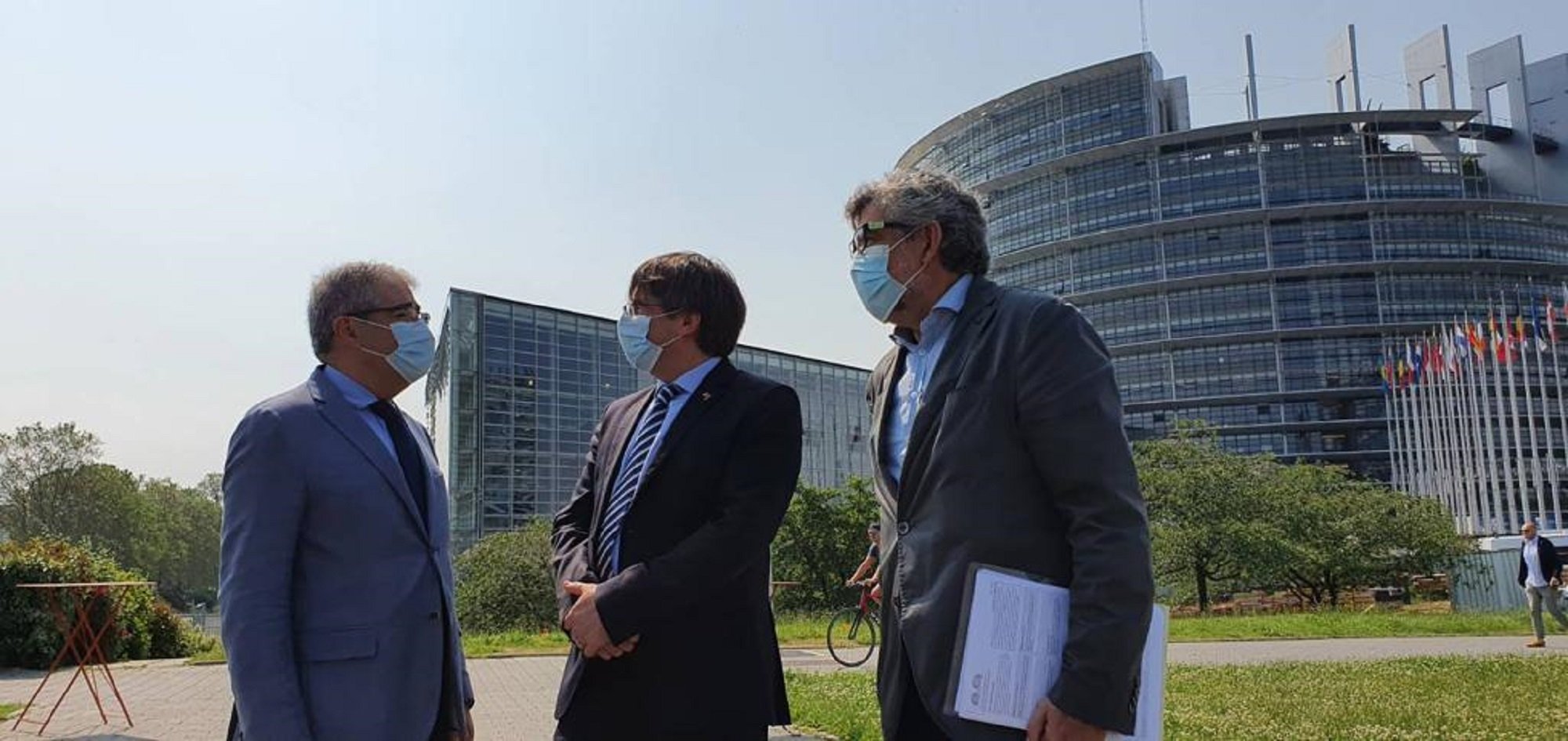Jordi Turull has today become the second of the Catalan political prisoners to appeal his sentence beyond the borders of the Spanish state. The lawyers of the former Catalan government minister imprisoned in Lledoners jail, Jordi Pina and Quico Homs, announced the presentation of the appeal outside the court it is to enter, the European Court of Human Rights, in Strasbourg. They were accompanied by exiled Catalan president Carles Puigdemont.
Puigdemont and the lawyers emphasised how the cases of the Catalan political prisoners and the exiles are now coming together again in Europe, after the long journey through Spanish justice. "I don't know how long it will take, but today we enter a phase in which we meet again in Europe and when we have played matches in Europe, we have usually done very well," said Puigdemont, who insisted that in this setting, outside Spain, "judges are independent, they are not bought off, and the playing field is neutral," which should facilitate the "restitution" of rights.
Sentenced to 12 years' prison and disqualification from office holding for sedition and misuse of public funds, Turull activated the Strasbourg route after the Constitutional Court rejected his appeal against that sentence, a decision which exhausted the appeal routes in the Spanish state. The first to take his case to the Strasbourg court was social leader Jordi Cuixart, president of Òmnium Cultural, whose papers were presented yesterday.
Legally-correct judge
Pina explained that the appeal focuses on the most significant grievances that have affected Turull in the Spanish courts. "The first is the violation of the right to the judge predetermined by law. This trial should never have been held in the Supreme Court, but in the Catalan HIgh Court," he detailed, in addition to highlighting the Supreme Court's interest in keeping this process in its own hands, with judge Manuel Marchena at the helm, "to become, more than judges, saviours of the homeland."
The second aspect they denounce is the right to a neutral judge. "The case has not been handled by impartial judges, but by partial judges," said Pina, who recalled, among other things, that rulings made by investigating judge Pablo Llarena spoke of "the harassment we suffer", positioning himself as a "victim, in the first person."
The case also includes the WhatsApp message from Spainish senator for the Popular Party, Ignacio Cosidó, in which he explained to his party colleagues that with judge Marchena as president of both the General Council of the Judiciary and the Supreme Court, as initially agreed in 2018 with the PSOE, they would control the court's criminal chamber "by the back door."
Dissenting votes by constitutional judges
In relation to the defence of the right to peaceful demonstration and the right to freedom of expression, the appeal takes up "thread by thread" the dissenting opinion presented by judges Juan Antonio Xiol and María Luisa Balaguer, disagreeing with the Constitutional Court ruling that rejects Turull's appeal, and warning that the rallies held on September 20th, 2017, key in the Supreme Court's judgment that sedition had occurred, should have been protected by the right to assembly.
When asked about the influence of these appeals on the pardons proposed by the Spanish government, Homs stressed that the latter are a decision in the hands of Pedro Sánchez, while at the same time, the public prosecutors and state solicitors have been filing appeals against those involved in the trial. "The Spanish judiciary's voraciousness against fundamental rights continues and this is outside the dynamics of pardons. This forces us to present appeals because we are convinced that only through European justice will we be able to restore justice and rights in Spain," he said.
In the main image, Francesc Homs, Carles Puigdemont and Jordi Pina outside the Strasbourg court.

